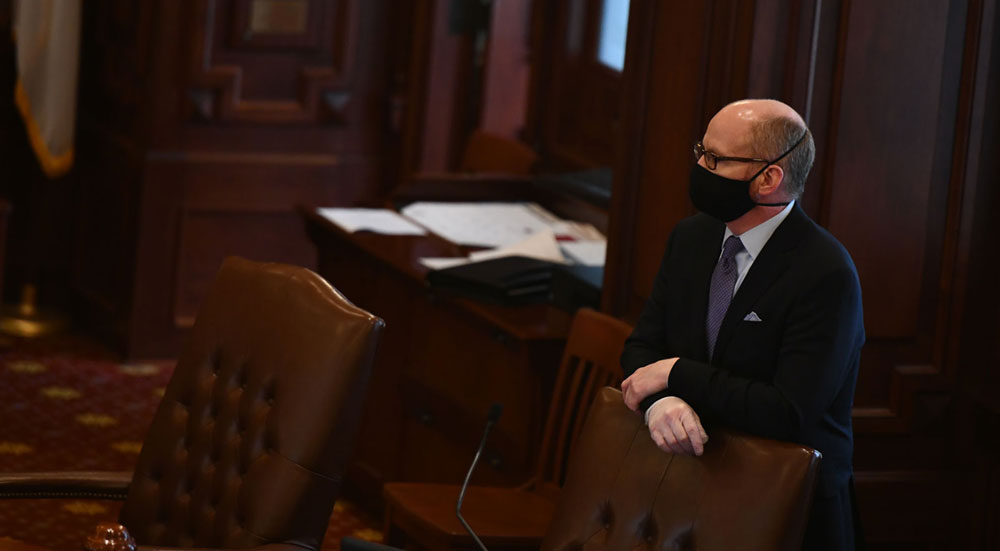 The Illinois Senate took the final legislative action needed to give voters the opportunity keep or overhaul the state’s nearly 50 year old flat-tax tax system.
The Illinois Senate took the final legislative action needed to give voters the opportunity keep or overhaul the state’s nearly 50 year old flat-tax tax system.
A constitutional amendment on the November ballot asks voters if they want to change the Illinois Constitution to a system of tax brackets where higher incomes pay a higher rate and middle class families and lower wage households pay a lower rate.
The Senate passed the final language that will appear both on the ballot and in a pamphlet sent to voters explaining what the amendment does and making the case for and against it. Supporters of the tax overhaul drafted the language regarding why it is a good idea. Republican lawmakers drafted the language opposing the change and in favor of keeping the status quo tax system.
Senate President Don Harmon sponsored the initial Fair Tax amendment and led Thursday’s legislative efforts to finalize the proposal, shrugging off recent calls from Republican critics that the option be taken away from voters.
"The Fair Tax promises tax relief to small businesses and middle-class families. I don't know why in the middle of a pandemic they would try to take that option away," Harmon said.
During Thursday’s debate, Harmon pointed out that 97 percent of Illinoisans would see lower taxes under the new tax system.
“And today, most importantly, the people who have been kicked in the teeth by this pandemic are the same people who will benefit the most from the Fair Tax. If you're earning $50,000 a year, if you've had your hours cut back, if you're worried about losing your job, you're the people who are going to get the most profound tax reduction from the Fair Tax,” Harmon said.
“Most people earning $250,000 or $500,000 a year aren't facing those same paralyzing fears. Their jobs may have been disrupted, but they likely have the resources to get by. And, they are almost certain to be making that kind of money going forward. The family getting by on $35,000 or $75,000 a year and worried about whether they're going to have the job, they're the ones who get the tax cut.”
Voters will decide whether to adopt the constitutional amendment in the November elections.













 © 2026 Illinois Senate Democratic Caucus
© 2026 Illinois Senate Democratic Caucus